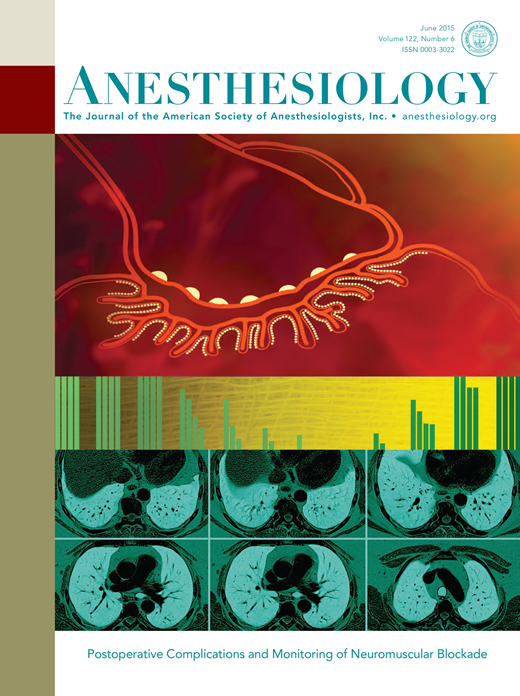加巴喷丁用于大手术后疼痛管理:一项安慰剂对照、双盲、随机临床试验(GAP研究)。
IF 9.1
1区 医学
Q1 ANESTHESIOLOGY
引用次数: 0
摘要
加巴喷丁是一种抗惊厥药物,已被批准用于神经性疼痛和癫痫性疾病。在手术期间和手术后,它经常被添加到多模式镇痛方案中,以减少阿片类药物的使用,同时有效地控制疼痛。几乎没有证据表明它在大手术中的有效性。方法在这项多中心、双盲、随机对照试验中,接受重大心脏、胸部或腹部手术的成年人随机接受加巴喷丁(术前600mg,术后两次300mg,连续2天)或安慰剂。主要观察指标为住院时间。次要结局包括急性和慢性疼痛、总阿片类药物使用、不良健康事件和与健康相关的生活质量。患者每日住院随访至出院,术后4周和4个月随访。结果1196名参与者被随机化(500人接受心脏手术,346人接受胸外科手术,350人接受腹部手术);596人被分配到安慰剂组,600人被分配到加巴喷丁组。两组患者的中位住院时间相似(加巴喷丁5.94 (IQR 4.08-8.04)天,安慰剂6.15 (IQR 4.22 - 8.97)天;风险比1.07,95%CI 0.95-1.20, p=0.26)。总体而言,384名参与者经历了一个或多个严重不良事件(加巴喷丁189/596,31.7%;安慰剂195/599,32.6%),在不同的外科专科有一些差异。结论在接受心脏、胸腹外科手术的患者中,在多模式镇痛方案中加入加巴喷丁并没有改变住院时间和严重不良事件的发生次数。本文章由计算机程序翻译,如有差异,请以英文原文为准。
Gabapentin for pain management following major surgery: a placebo controlled, double blind, randomized clinical trial (The GAP Study).
BACKGROUND
Gabapentin is an anticonvulsant medication with approval for use in neuropathic pain and epileptic disorders. It is frequently added to multimodal analgesic regimens during and after surgery to reduce opioid use while controlling pain effectively. There is little evidence to show its effectiveness in major surgery.
METHODS
In this multicenter, double blinded, randomized controlled trial, adults undergoing major cardiac, thoracic or abdominal surgery were randomized to receive either gabapentin (600mg before surgery, 300mg twice daily for 2 days after surgery) or placebo. The primary outcome was length of hospital stay. Secondary outcomes included acute and chronic pain, total opioid use, adverse health events and health related quality of life. Patients were followed up daily in-hospital until discharge and then at 4-weeks and 4 months after surgery.
RESULTS
1196 participants were randomized (500 underwent cardiac, 346 thoracic and 350 abdominal surgery); 596 were allocated to placebo and 600 were allocated to gabapentin. Median length of hospital stay was similar in the two groups (gabapentin 5.94 (IQR 4.08-8.04) days, placebo 6.15 (IQR 4.22 - 8.97) days; hazard ratio 1.07, 95%CI 0.95-1.20, p=0.26). Overall, 384 participants experienced one or more serious adverse events (gabapentin 189/596, 31.7%; placebo 195/599, 32.6%), with some variation across surgical specialties.
CONCLUSIONS
Among patients undergoing major cardiac, thoracic and abdominal surgery, adding gabapentin to multimodal analgesic regimes did not alter the length of hospital stay, or the number of serious adverse events.
求助全文
通过发布文献求助,成功后即可免费获取论文全文。
去求助
来源期刊

Anesthesiology
医学-麻醉学
CiteScore
10.40
自引率
5.70%
发文量
542
审稿时长
3-6 weeks
期刊介绍:
With its establishment in 1940, Anesthesiology has emerged as a prominent leader in the field of anesthesiology, encompassing perioperative, critical care, and pain medicine. As the esteemed journal of the American Society of Anesthesiologists, Anesthesiology operates independently with full editorial freedom. Its distinguished Editorial Board, comprising renowned professionals from across the globe, drives the advancement of the specialty by presenting innovative research through immediate open access to select articles and granting free access to all published articles after a six-month period. Furthermore, Anesthesiology actively promotes groundbreaking studies through an influential press release program. The journal's unwavering commitment lies in the dissemination of exemplary work that enhances clinical practice and revolutionizes the practice of medicine within our discipline.
 求助内容:
求助内容: 应助结果提醒方式:
应助结果提醒方式:


